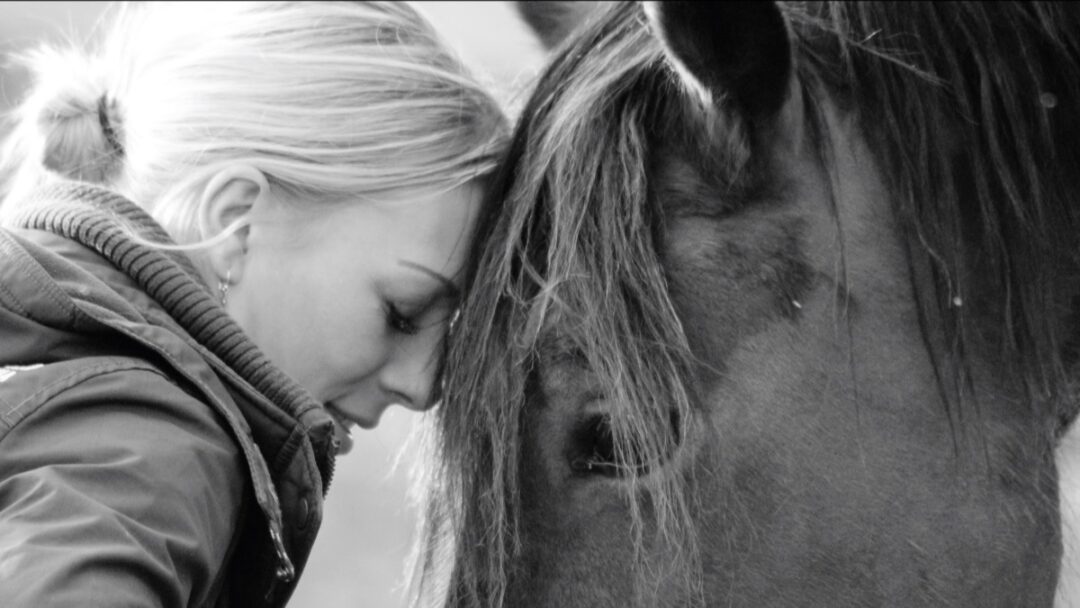
Experiential learning goes beyond traditional methods like reading or discussing—it’s about direct, sensory experiences that engage the body, mind, and spirit. When you incorporate honest, non-judgmental feedback from a horse, the impact can be life-changing. Many clients say they’ve learned more in one session with a horse than in weeks of traditional therapy or coaching. It’s that memorable!
Last November, our newsletter outlined various equine-assisted services and organizations, as well as professional training and certification programs. In case you missed it, you can find that here.
If you’re exploring Equine-Assisted Services (EAS), there are several options to consider:
- Therapy/Counseling – Focused on emotional and mental health.
- Coaching/Learning – Aimed at personal and professional growth.
- Horsemanship – Includes therapeutic riding or adaptive riding.
This article will offer a basic overview of the first two types: ground-based activities that promote mental health, recovery, learning or personal and professional growth.
Equine Therapy Approaches
Equine-Assisted Therapy (EAT) and Equine-Assisted Psychotherapy (EAP) are treatment modalities designed to help individuals manage mental, emotional, and behavioral challenges. Both involve a licensed or certified mental health professional (MH) typically working alongside an experienced equine specialist (ES). The therapist begins by conducting a thorough assessment of the client’s history, needs, and goals to determine the most effective ways to incorporate horses into the therapy process. These sessions usually focus less on verbal communication between the therapist and client, and more on direct interaction with the horse. During or after this interaction, the therapist then helps the client reflect on their experiences with the horse which can promote healing from past traumas, teach healthy coping skills, and improve overall mental and emotional well-being. It’s important to note that these therapies are not intended for organizational development or team-building purposes.
Equine Educational Approaches
Equine-Assisted Learning (EAL) and related approaches—such as Equine Facilitated Learning (EFL), Equine Guided Learning (EGL), and Equine Guided Education (EGE)—integrate horses with activities that enhance skills like problem-solving, decision-making, communication, and confidence. These services are typically provided by professionals who are trained in both educational/teaching methods and horse behavior, with expertise in human-horse interactions and designing experiential learning activities. Facilitators working with teams or organizations often hold advanced degrees or specialized training in areas like organizational theory, team building, strategic planning, or leadership development. Additionally, EAL and Equine Assisted Therapy (EAT) sessions emphasize important safety protocols for working with horses. Providers should be able to clearly explain how their services differ from traditional psychotherapy and counseling.
Equus Coaching Approaches
The International Coaching Federation defines coaching as “partnering with clients in a thought-provoking and creative process that inspires them to maximize their personal and professional potential.” This definition emphasizes that coaching is a collaborative process that focuses on the present and the future while being driven by the client’s goals. The coach’s responsibility is to help the client discover, clarify, and align their aspirations in a purposeful and transformational way. While coaching can have therapeutic benefits, it is important to note that it is not the same as therapy.
An Equus Coach® combines traditional coaching techniques with equine-assisted interactions to help clients identify behavioral patterns and examine how underlying attitudes and beliefs affect themselves and others. Equus Coaches are trained in horsemanship, horse behavior, and human-horse relationships, and many hold certifications in life coaching or leadership. They facilitate equine activities for individuals, couples, and families. Sessions typically start with an explanation of what coaching is and is not, what can be learned from horses, and a demonstration of basic safety practices around them. Some Equus Coaches may also possess advanced degrees in psychology, social work, or counseling and may be licensed psychotherapists.
Equus Master Facilitators complete an additional year of training that focuses on adult learning, group and team dynamics, managing multiple horses, and leading groups in workshops and retreats. As part of their certification, these coaches observe, assist, and apprentice at several workshops conducted by experienced facilitators before designing and facilitating their own team or group offering, under the observation and support of an instructor.
_______________________________
Things to Consider: Many people who wish to offer equine-assisted experiences are driven by a deep passion for horses and a sincere desire to help others. However, this passion doesn’t always translate into the necessary skills and expertise. Training programs can vary widely in length and structure. Some certification programs require a commitment of six months to two years, including hands-on horse experience and observed sessions with feedback from experienced instructors. Other programs may be shorter, consisting of weekend events with pre- or post-requisite self-study. Recently, online self-study programs have emerged, often relying on AI-generated content and lacking in-person interaction. There are also programs that fall somewhere in between these options.
How to Decide: Many providers offer introductory sessions where you can learn more about them, your goals, and what to expect. It’s important to ask about the provider’s experience, training, and fees, as well as the specifics of your potential interactions with horses. Pay attention to how you feel during your initial conversation with the provider. Do they seem open, willing to answer your questions, and genuinely listen to your concerns?
As with any new journey, begin within. Trust your instincts! Your internal radar will help guide you in determining if a modality feels right for you, and whether the person or situation feels safe. Don’t hesitate to ask for references or a copy of the provider’s code of ethics.
When you’re ready, take the leap! Stay open to the transformative experience that working with horses can offer.
Questions? Email Renee at Renee@equuscoach.com
Interested in becoming an Equus Coach?
Set up a discovery call with Lori Moskal, Student Coordinator